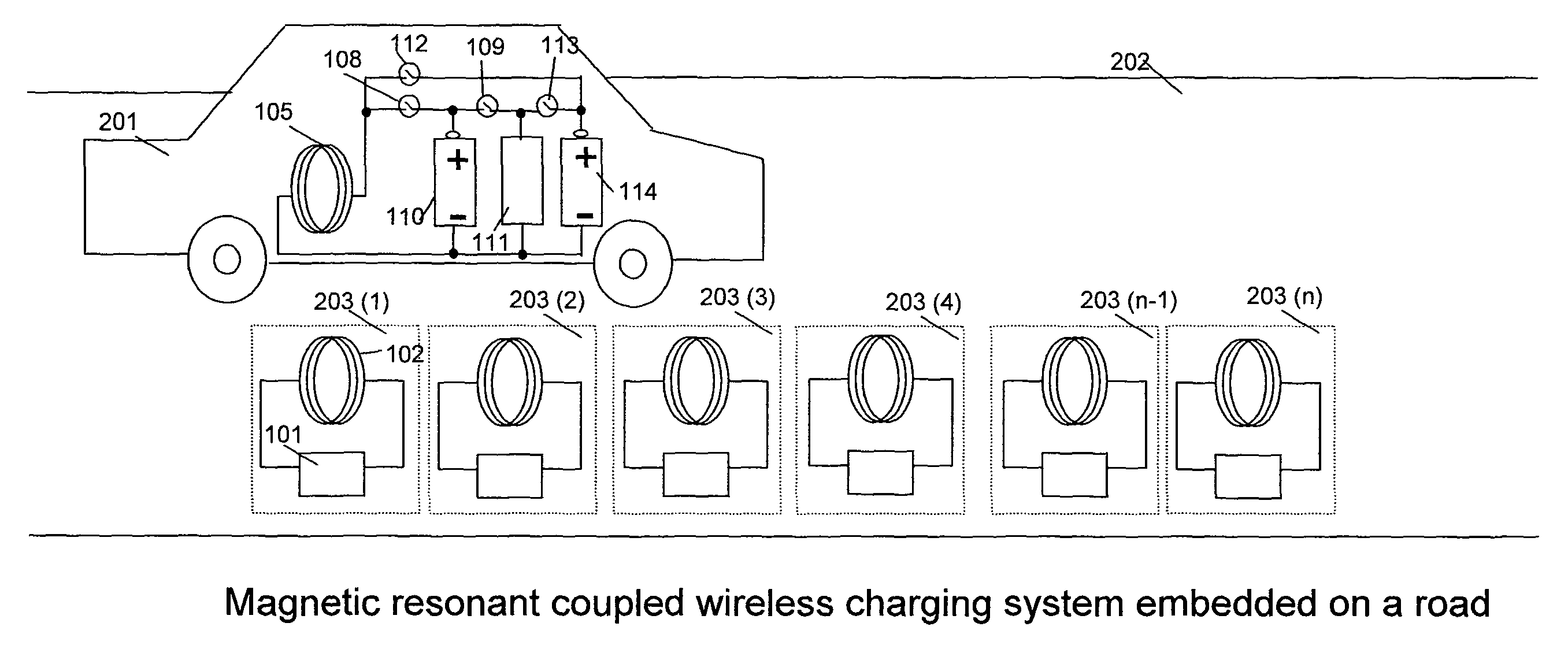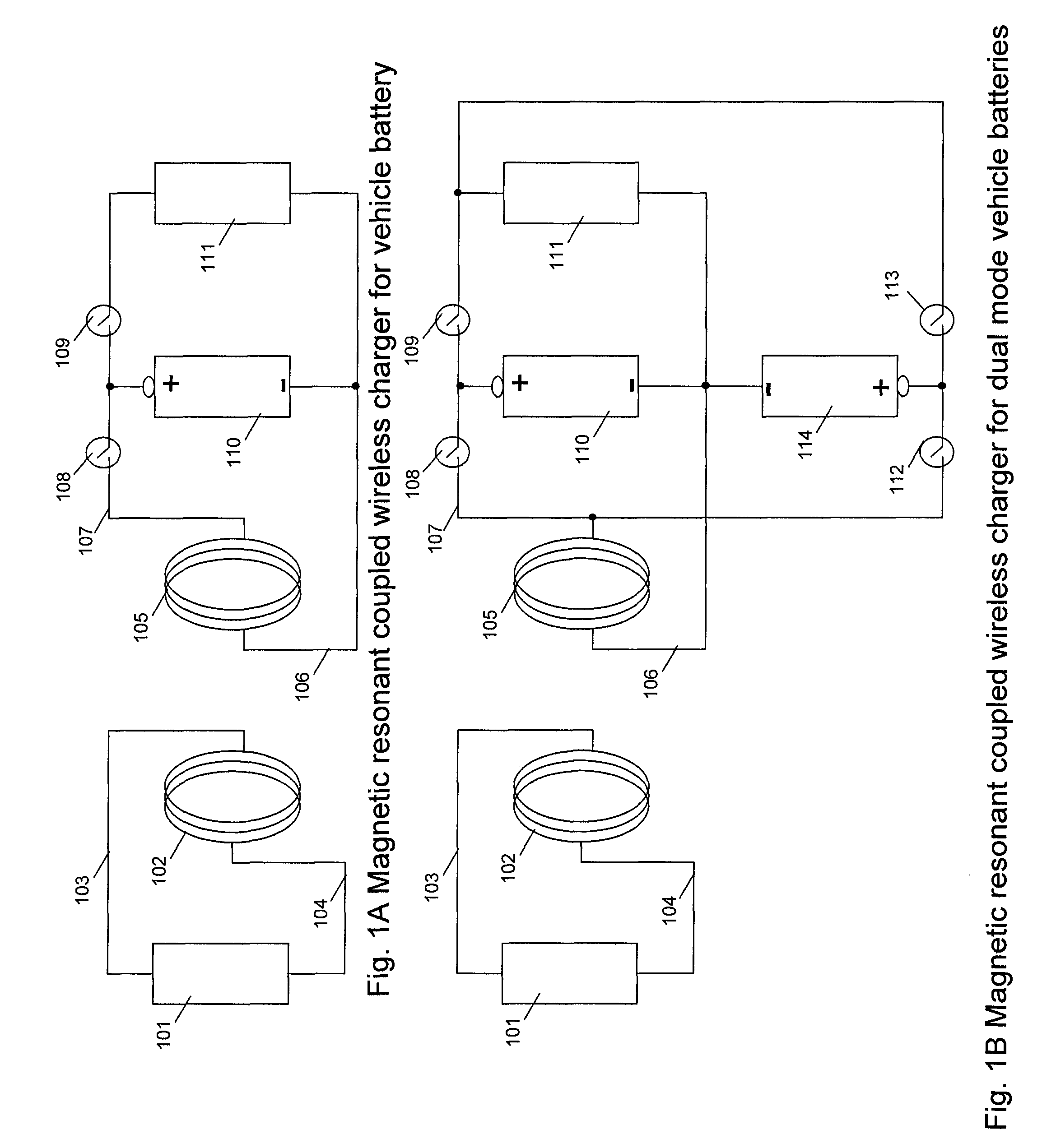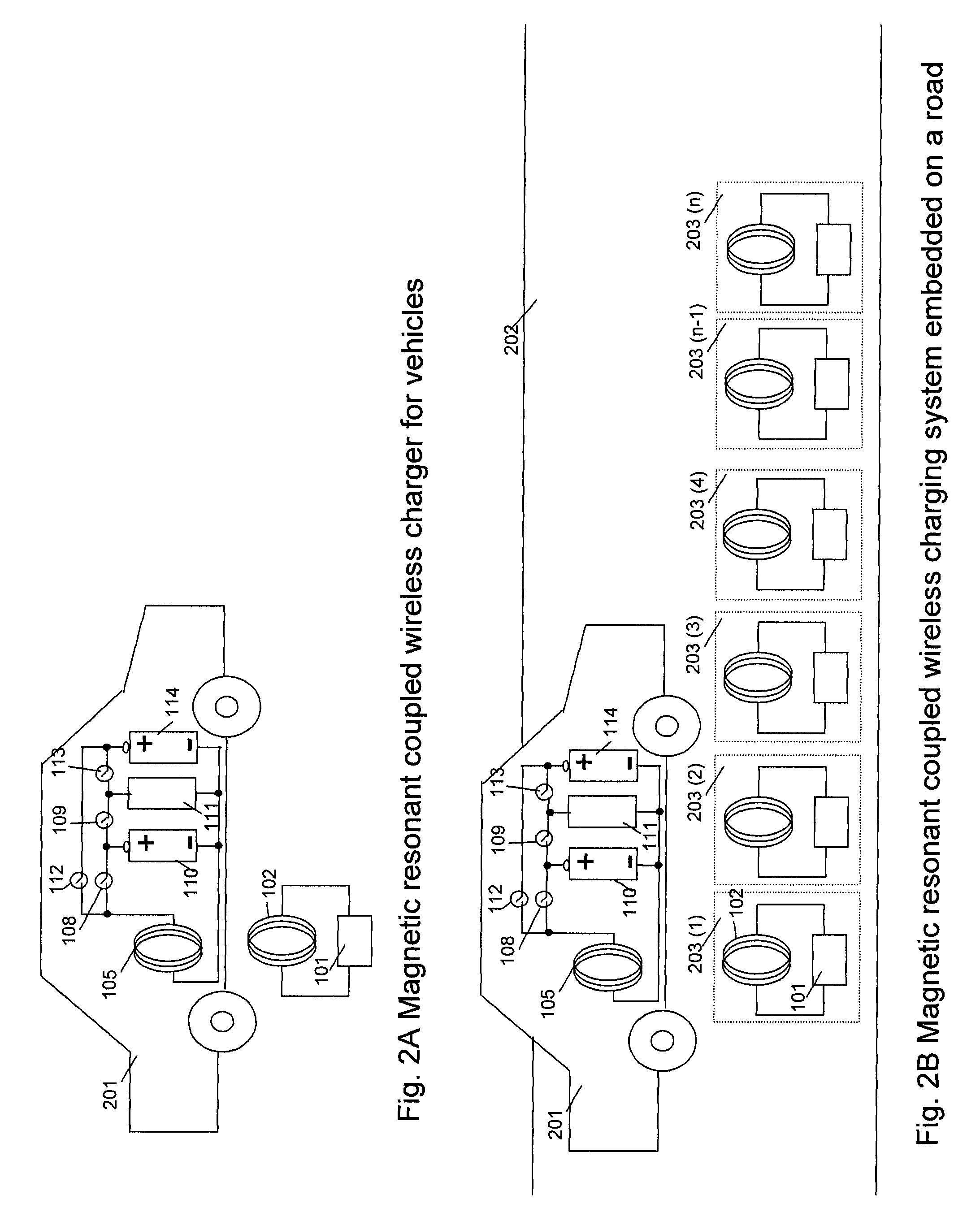Wireless charging system for vehicles
a charging system and vehicle technology, applied in charging stations, transportation and packaging, ways, etc., can solve problems such as transportation driven global warming, and achieve the effect of eliminating the need for gasoline and reducing the battery capacity and automotive range problems
- Summary
- Abstract
- Description
- Claims
- Application Information
AI Technical Summary
Benefits of technology
Problems solved by technology
Method used
Image
Examples
Embodiment Construction
[0028]Today's hybrid vehicles deploy 1-2 kilowatt-hour rechargeable batteries which give them an electric only mode operation for 10 to 20 miles. This range can be extended to 40 to 50 miles using 6 to 8 Kilowatt-hour batteries using Li-Ion batteries. The batteries cannot be used until they are recharged once they are used for their target range. Such range of operation in electric only mode can be useful for local travel, however for longer distance travel gasoline has to be used which continues to add green house gases in the atmosphere.
[0029]To extend the battery capacity to store more energy is a difficult problem to solve and may even require new battery technology and materials to be invented. Our invention does not require invention of any new battery technology. Our invention works with existing rechargeable battery technologies like NiMH, Li-Ion and the like or fuel cells.
[0030]The rechargeable batteries of the hybrid vehicles today may be charged by the owners at home or a...
PUM
 Login to View More
Login to View More Abstract
Description
Claims
Application Information
 Login to View More
Login to View More - R&D
- Intellectual Property
- Life Sciences
- Materials
- Tech Scout
- Unparalleled Data Quality
- Higher Quality Content
- 60% Fewer Hallucinations
Browse by: Latest US Patents, China's latest patents, Technical Efficacy Thesaurus, Application Domain, Technology Topic, Popular Technical Reports.
© 2025 PatSnap. All rights reserved.Legal|Privacy policy|Modern Slavery Act Transparency Statement|Sitemap|About US| Contact US: help@patsnap.com



